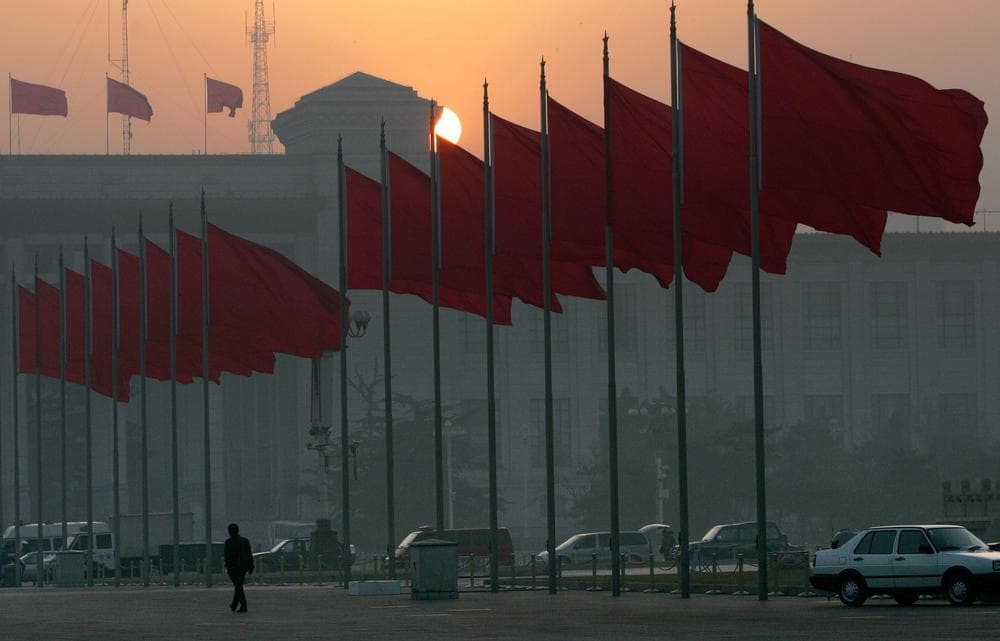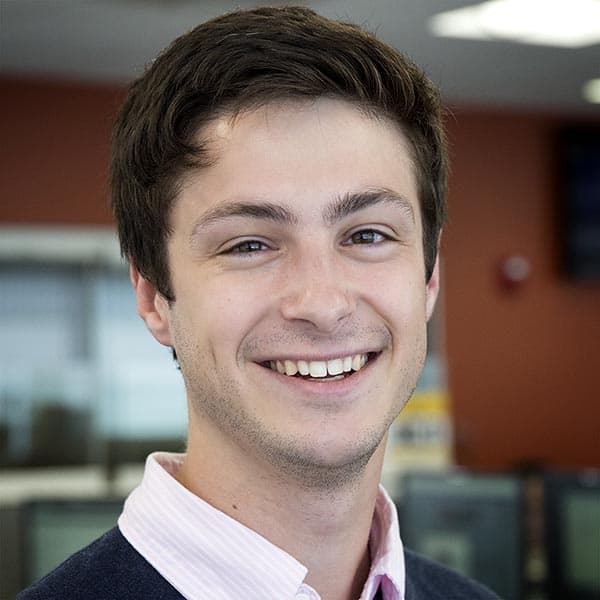Advertisement
Zhou Fengsuo Reflects On His Tiananmen Square Protest: 'Just Listening Brings Me To Tears'

Beijing’s Tiananmen Square, in the shadow of the Forbidden City, the home to China’s emperors for half a millennium. It's where Mao Zedong triumphantly proclaimed the founding of the People’s Republic of China in 1949.
Fast-forward 40 years, to June 1989: The culmination of seven weeks of pro-democracy demonstrations ended with one of the darkest days in China’s history. Hundreds dead, maybe thousands, with countless more wounded. The exact number is still not known.
Three decades later, China’s global power rises. Economic gains have transformed the lives of the Chinese people even as the government continues to crack down hard on dissent.
Thirty years later, what is the lasting legacy of Tiananmen Square?
For Zhou Fengsuo, one of the 21 student leaders of the 1989 protests in Tiananmen Square whose arrest was ordered by the Beijing Public Security Bureau, it's changed his life forever.
"This was very difficult times with me. The day before June 4, and the evening June 3," he told On Point's Meghna Chakrabarti on Wednesday. "This was the darkest moment in Chinese history."
"Nobody expected the brutal massacre. It came as a complete surprise."
Zhou Fengsuo
Zhou, a top physics university student at the time, joined the pro-democracy protests motivated by the desire for freedom and political change. He soon found himself unexpectedly among those leading the actions.
"I was kind of reluctant, even though before the demonstration I organized the independent election of the student union in my university," Zhou said. "I think that, looking back, that was very significant because that was probably the only direct election ever had on campus.
"Nobody was willing to lead. I was kind of, 'Oh what a shame. You know, we all believe it's the right thing to do. But, yeah, we do not want to put our head out,' " he remembers. "So I said, 'OK. You can follow me.' That's how I became the leader, eventually recognized by the government on the most wanted list."
Zhou was arrested June 13, 1989, and imprisoned for a year, before moving to the United States in 1995. He went on to become president of the human rights charity Humanitarian China, which he co-founded in 2007.
More Interview Highlights
On looking back at the scenes from 1989
"Just listening to this brings me to tears.
"Before the massacre, Beijing was in the festival mode, because for the first time in Chinese history, millions of people were able to speak from their heart. And there was just such a desire to speak; to express. And you can still see these pictures. So nobody expected the brutal massacre. It came as a complete surprise.
"I was there from the evening of June 3, to the morning of June 4, until we were driven away from Tiananmen Square. I was among the last to leave Tiananmen Square. It was like experiencing a wall, except that we were at the eye of the storm. We were protected by the courageous citizens of Beijing, who would do anything to block the army … [with their] body. That's why you see images like Tank Man. It happened to many people, and many more crushed, at least about 10 of them are documented. We don't really know. There are other reports of people killed by tank, too. That's the kind of courage people are showing you in the face of this violence, brutality.
"After 30 years, it's probably too late. I believe we'll probably never know how many people died."
"There are other reports of people killed by tank, too. That's the kind of courage people are showing you in the face of this violence, brutality."
Zhou Fengsuo
On honoring the legacy of those who died in the protests
"Even for someone like me, it's only a small part of it. For example, the tank attack, that happened like minutes after we left. I was fortunate just to miss it by maybe 10 minutes. And I never knew it until I was out of prison and met Fang Zheng, who is a true hero. He was trying to save someone. He was crushed. And there was a full story.
"So this was me. I was considered a student leader. And during the last 30 years, because I'm working on this, just trying to help these people. And there are people who every year would come to me to describe people who I’ve never known [who] died there. People still, even today, people free to speak, as we are talking now — there are the families of these people who were killed [now] in the United States. They’re afraid to talk."
Brian Hardzinski produced this hour for broadcast.
